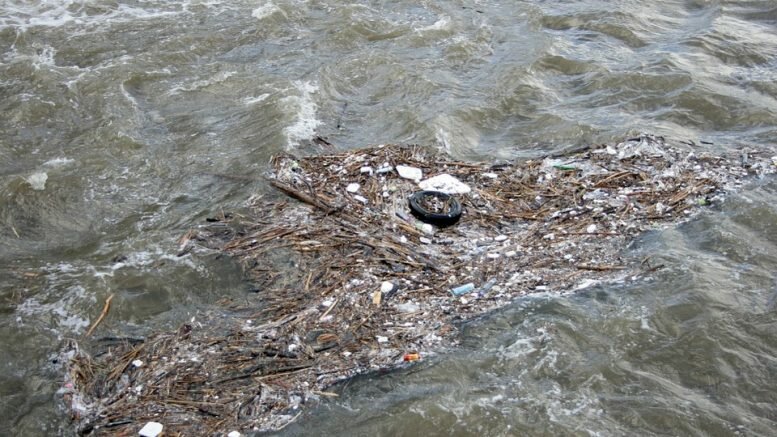The Government has awarded NOK 60 million towards removing plastic along the coast of Norway
Organizations that want to clear the coast for plastic will be awarded another NOK 25 million from the Government . Polar Institute researcher believes that a lot of work remains.
It was the Liberal Party which won approval for money for plastic collection in this year’s revised state budget. So far this year there has been allocated a total of 60 million towards cleaning the shoreline and seabed of plastic.
– I think that plastic in the sea is Norway’s most acute environmental problem, which we must handle as quickly as possible. We have barely scratched the surface of this enormous problem, says Rebekka Borsch, parliamentary candidate for Buskerud Venstre.
In the past volunteers did all the clearing of beaches and sea beds in Norway. Two years ago the Government introduced a grant scheme against pollution of the sea. The scheme was a brain child of the Liberal Party (Venstre).
Plastic waste on the beaches represents between 10 and 15 percent of all plastic in the sea, while about 70 percent are found on the seabed. The remainder is obviously floating around or found inside sea creatures.
The Liberal politician admits that beach cleaning only solves a small part of the problem with plastic.
– It is a little bit cosmetic, but now people are becoming more aware of how big the plastic problem is, so the will to spend a lot of money on cleanup and prevention is growing.
She believes the next necessary step is to get the maritime industry onboard to prevent the garbage from entering the sea in the first place.
Aesthetics
Senior Researcher Geir Wing Gabrielsen at the Norwegian Polar Institute believes financial support is a good initiative in towards cleaning the beaches along the Norwegian coast.
– It’s a lot about aesthetics and people wanting to see that it is spike and span on the beach they visit. That is fine, but we know that the bulk of all plastics are on the seabed, and we have a big challenge to clean up the plastic there, says Gabrielsen, who researches environmental pollutants and plastic pollution on Svalbard.
At the same time, the senior scientist believes that the money puts the spotlight on the plastic problem in the sea. Last year, nearly 19,000 people cleared a total of 870 kilometers along the Norwegian coast.
– I’m pleased to see such a big commitment among adults and children, and there is no doubt that they are contributing positively. But we have a long coastline, and it is clear that 870 kilometers constitutes the tip of the iceberg only, says Gabrielsen.
A plastic billion
Greenpeace supports the Government’s increased efforts to stop plastic pollution of the ocean at home, but believes the next step must be to increase efforts globally.
– In addition to taking a leading role in landing an international agreement against plastic pollution, Norway must contribute a plastic billion towards measures to stop plastic pollution globally, says Greenpeace Norway’s marine adviser, Halvard Haga Raavand.
Engages children
Bælekaget Sportklubb, the organizers of the Norway Cup, is among those who have been awarded support. Before the teams meet for the world’s biggest football tournament for children and youngsters in early August, they are encouraged to clear a beach in their district. The team that collects the most waste will be awarded.
Also, the Nature Conservation Association, Brunstad Christian Church in Bergen and Nordic Ocean Watch are among those who have been granted support. The latter shall clean the seabed. Using ROV’s they map marine waste and use divers to pick up the trash.
Plastic Whale
The Environmental Directorate received more than 200 applications for grants for plastic clearing this year. That is virtually three times as many as in 2016.
The extensive problem got a lot of attention when a beaked whale had to be put down at Vindenes on Sotra in February this year. The whale was found to have large amounts of plastic waste in its stomach.
– We believe that the beaked whale which was found with 30 plastic bags in its stomach is a wakeup call for many. It has demonstrated what marine plastic waste can ultimately lead to, says Ellen Hambro. Hambro is a Manager in the Environment Directorate.
In May, NOK 35 million was distributed to various organizations that want to clear plastic at the beach or on the seabed.
© NTB Scanpix / Norway Today


